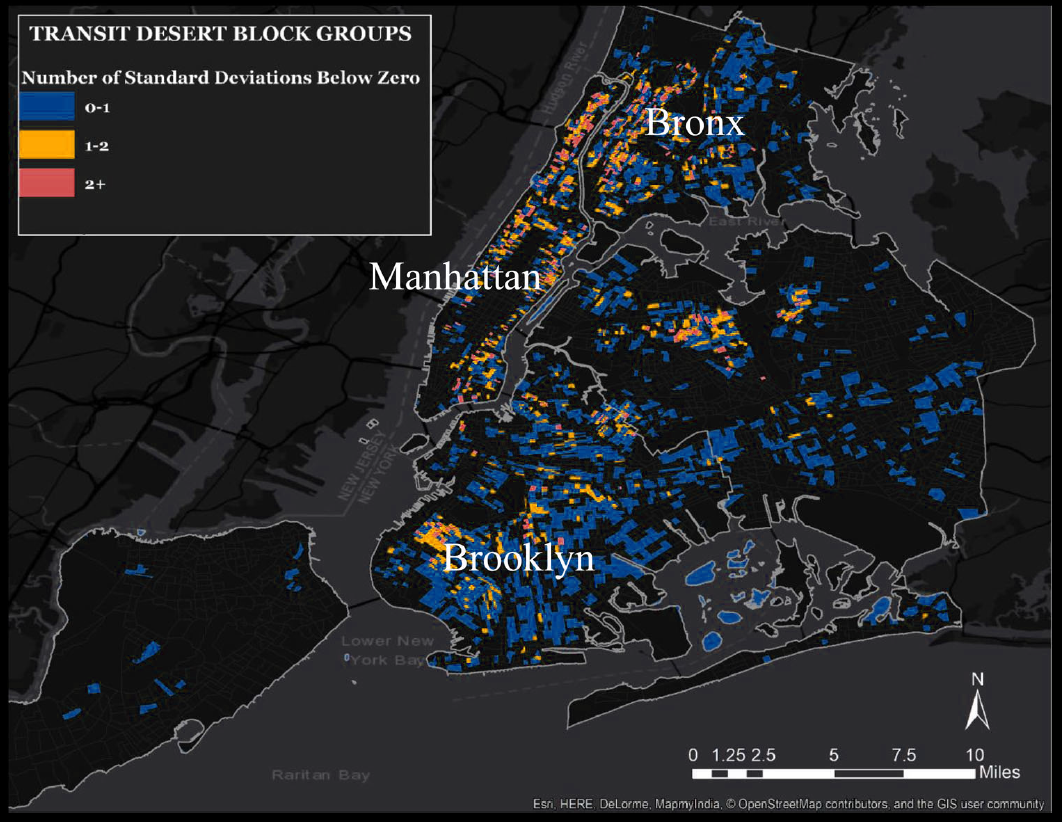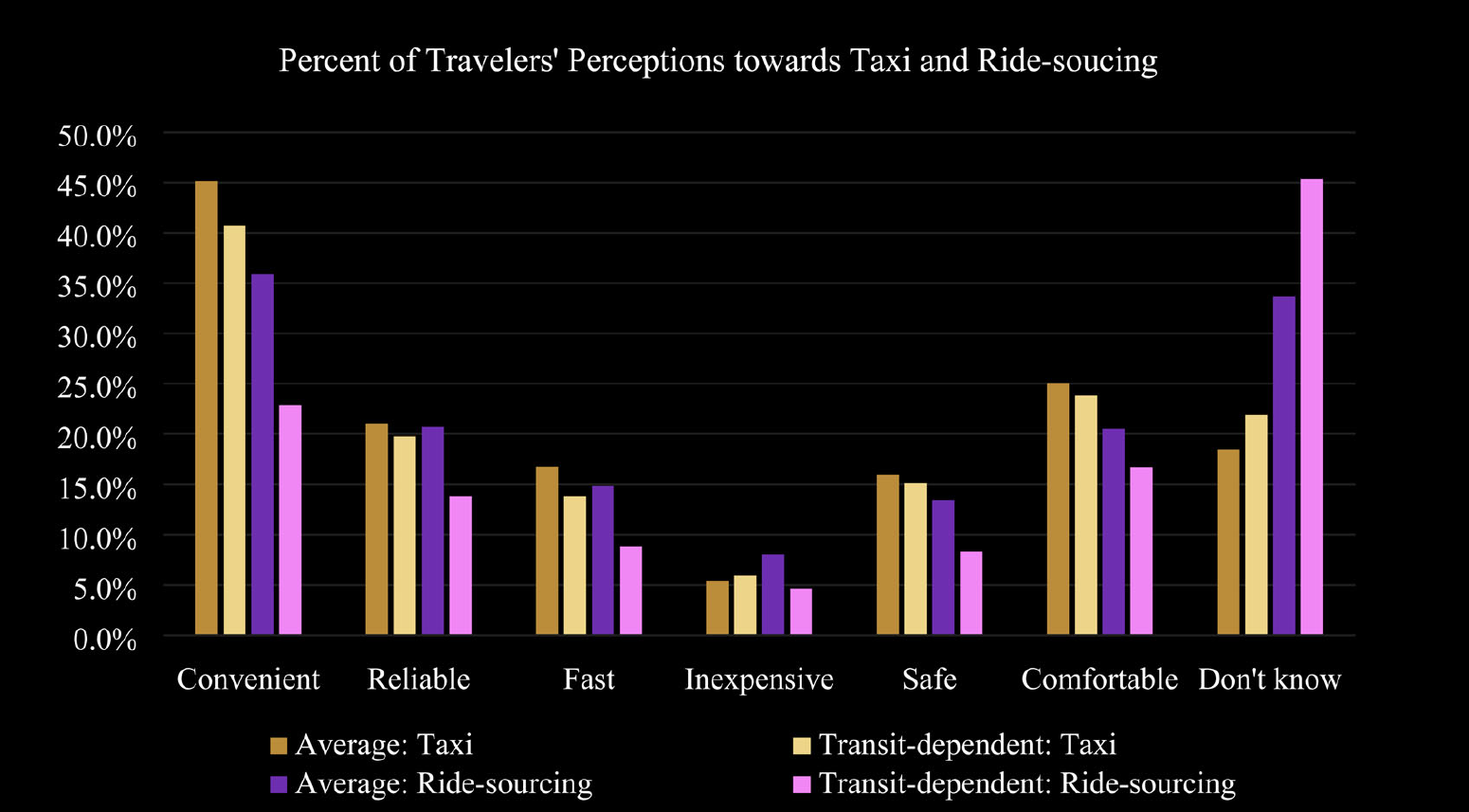This paper examines the impact of shared mobility on transit-dependent populations and the potential for shared mobility to alleviate transit deserts in New York City (NYC). Utilizing data from various sources and multinomial models, the study reveals that shared mobility plays a significant role in serving low-income individuals without access to cars and people with physical challenges. However, shared mobility services in NYC predominantly serve wealthier areas with better transit access and fewer transit-dependent residents. These findings suggest that without effective policy and planning, shared mobility could exacerbate transportation equity issues, despite their apparent ability to cater to transit-dependent travelers.





